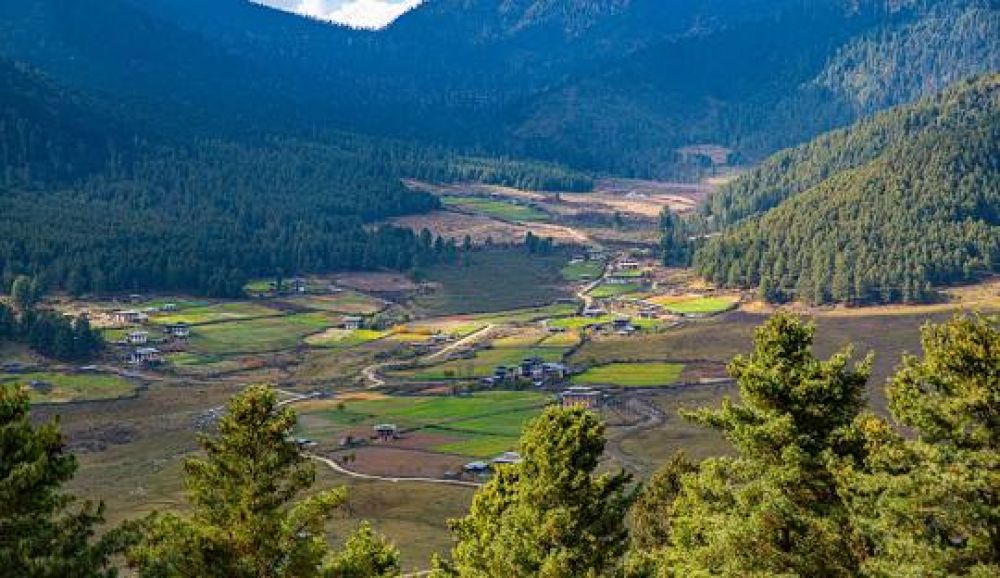

Nestled within the heart of Bhutan, the Phobjikha Valley is a striking glacial valley that has captured the hearts of travelers and nature enthusiasts alike. The history of tourism in Phobjikha Valley is intertwined with Bhutan's overall approach to tourism and its efforts to preserve the nation's unique culture and pristine environment.
Bhutan cautiously opened its doors to foreign visitors in 1974. This move was calculated and deliberate, aiming to avoid the negative impacts tourism could have on the country's culture and ecosystems. Phobjikha Valley, being one of the many majestic sites in Bhutan, became a part of this carefully curated tourist itinerary.
The concept of 'High Value, Low Impact' tourism was embraced to ensure visitors would have a profound appreciation for Bhutan's traditions and natural wonders, including the serene beauty of Phobjikha Valley. The area's importance as a conservation site for the endangered Black-necked cranes further reinforced its status as a must-visit destination for ecotourists.
With its expansive U-shaped glacial formations and the quaint Gangtey Monastery overlooking the valley, Phobjikha has an unmistakable charm. The valley is a vital habitat for the majestic Black-necked cranes during their migratory visits in the winter months from late October to mid-February, leading to an increase in environmentally conscious tourism during these months.
Realizing the value of this natural heritage, the local community, in partnership with conservation organizations, has developed sustainable tourism practices. These practices include community-based projects that offer authentic Bhutanese homestays, cultural experiences, and nature hikes. Through these activities, visitors not only enrich their own travel experiences but also contribute to the well-being of the local population and the environment.
In recent years, Bhutan and the Phobjikha Valley have seen a surge in the popularity of sustainable and experiential travel. Tourists are increasingly seeking immersive experiences that allow them to connect with local cultures, participate in traditional practices, and contribute to conservation efforts. Festivals like the Gangtey Tshechu and the Black-Necked Crane Festival attract visitors from around the world, offering a glimpse into the rich cultural tapestry of Bhutan and the valley.
As tourism trends evolve, Phobjikha Valley continues to adapt while still holding true to the principles of sustainability and cultural preservation. With the government of Bhutan's commitment to maintaining a carbon-neutral status and prioritizing Gross National Happiness, the future of tourism in Phobjikha Valley looks bright, promising to offer authentic and ecologically mindful experiences to the discerning traveler.